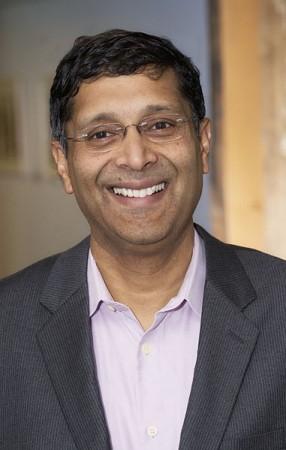
A high-powered academic who tells his students to read Joseph Conrad and Gabriel Garcia Marquez to better understand economic development was confirmed on Thursday as chief economic adviser to Prime Minister Narendra Modi's government.
Ending two months of uncertainty, US-based economist Arvind Subramanian announced at an impromptu news conference that he had got the job, on a day of drama in which the finance ministry's top civil servant was sacked.
His appointment inserts a friend of Reserve Bank of India (RBI) Governor Raghuram Rajan at the heart of policy making, as Modi seeks to make good on a jobs-and-growth pledge that swept him to power in a general election in May.
"I have just taken charge as chief economic adviser," Subramanian told reporters outside the finance ministry. "It is a great honour ... to serve in a government that has a mandate for reform and change."
Setting out his priorities, Subramanian said: "For any economy like India, two big things are macro-economic stability and, of course, creating the conditions for rapid investments and growth."
News of Subramanian's candidacy first leaked in August, and his confirmation marks a victory for Finance Minister Arun Jaitley, who lobbied hard to bring him on board in the face of initial scepticism from Modi.
His appointment followed news that Arvind Mayaram, the finance ministry's top civil servant, had been abruptly moved to another job in the ministry for tourism.
Mayaram was the official in charge of drafting Jaitley's maiden budget in July, which Subramanian panned in a newspaper column as "disappointing but retrievable".
Subramanian's new job gives him considerable influence over the next budget, due in February, as expectations grow for significant reforms to free up the Indian economy.
Associates describe Subramanian, who held senior fellowships at the Peterson Institute for International Economics and the Center for Global Development, as a forthright intellectual.
"The most important thing to know about Arvind, aside from his first-rate credentials as an economist, is that he is a truth-teller," said Milan Vaishnav, an India expert at the Carnegie Endowment for International Peace in Washington.
Intellectual Heft
The presence of Subramanian, a specialist in international development, will add intellectual heft to a nationalist cabinet that is widely seen as lacking strength in depth.
"Arvind ... boasts an undisputed academic reputation with a substantial understanding about how the policy process works," said economist Domenico Lombardi, who has served on the boards of the World Bank and International Monetary Fund (IMF).
Lombardi described Subramanian as "the de facto closest adviser" to Rajan when both worked in the IMF research department that Rajan headed as chief economist at the global lender.
In addition to world literature, Subramanian also recommends to his graduate students in Washington a working paper he co-authored with Rajan at the IMF which concluded that humanitarian aid does not help economies grow.
That puts his views in line with those of Modi, who wants India to break with six decades of Nehruvian socialism and embark on an investment-driven growth push that seeks to emulate China's manufacturing miracle.
The star of the Washington think-tank set could act as a mediator between Modi and Rajan as the government and RBI seek to thrash out the terms of a monetary policy overhaul that sets targeting inflation as its main priority.
Friends say, however, that Subramanian is independent-minded and does not see eye to eye with Rajan on every issue. Both, though, agree that central bank independence should be a key element of policy making.
He would also be a suave advocate of India's interests at international forums like the Group of 20 or BRICS caucus of emerging market economies, where New Delhi has typically punched below its weight.
After announcing his appointment, Subramanian took a handful of questions before driving off in an Indian-made white government sedan. He has been appointed for three years and will earn ₹80,000 ($1,300 a month), according to a later government statement that confirmed his appointment.





!['He is done with the team now' : Angry Virat Kohli slams the bat, kicks the ground, yells at RCB team as SRH smashes runs [reactions]](https://data1.ibtimes.co.in/en/full/796956/he-done-team-now-angry-virat-kohli-slams-bat-kicks-ground-yells-rcb-team-srh-smashes.jpg?w=220&h=138)






